You are using an out of date browser. It may not display this or other websites correctly.
You should upgrade or use an alternative browser.
You should upgrade or use an alternative browser.
WAR Regional conflict brewing in the Mediterranean
- Thread starter danielboon
- Start date
-
- Tags
- middle east
jward
passin' thru
Lindsey Snell
@LindseySnell
8h
In Syria, the KRG, and Libya, Turkey (and their military, the second largest in NATO) spreads mayhem and picks up where ISIS left off.
View: https://twitter.com/LindseySnell/status/1272301399292993536?s=20
@LindseySnell
8h
In Syria, the KRG, and Libya, Turkey (and their military, the second largest in NATO) spreads mayhem and picks up where ISIS left off.
View: https://twitter.com/LindseySnell/status/1272301399292993536?s=20
Zagdid
Veteran Member
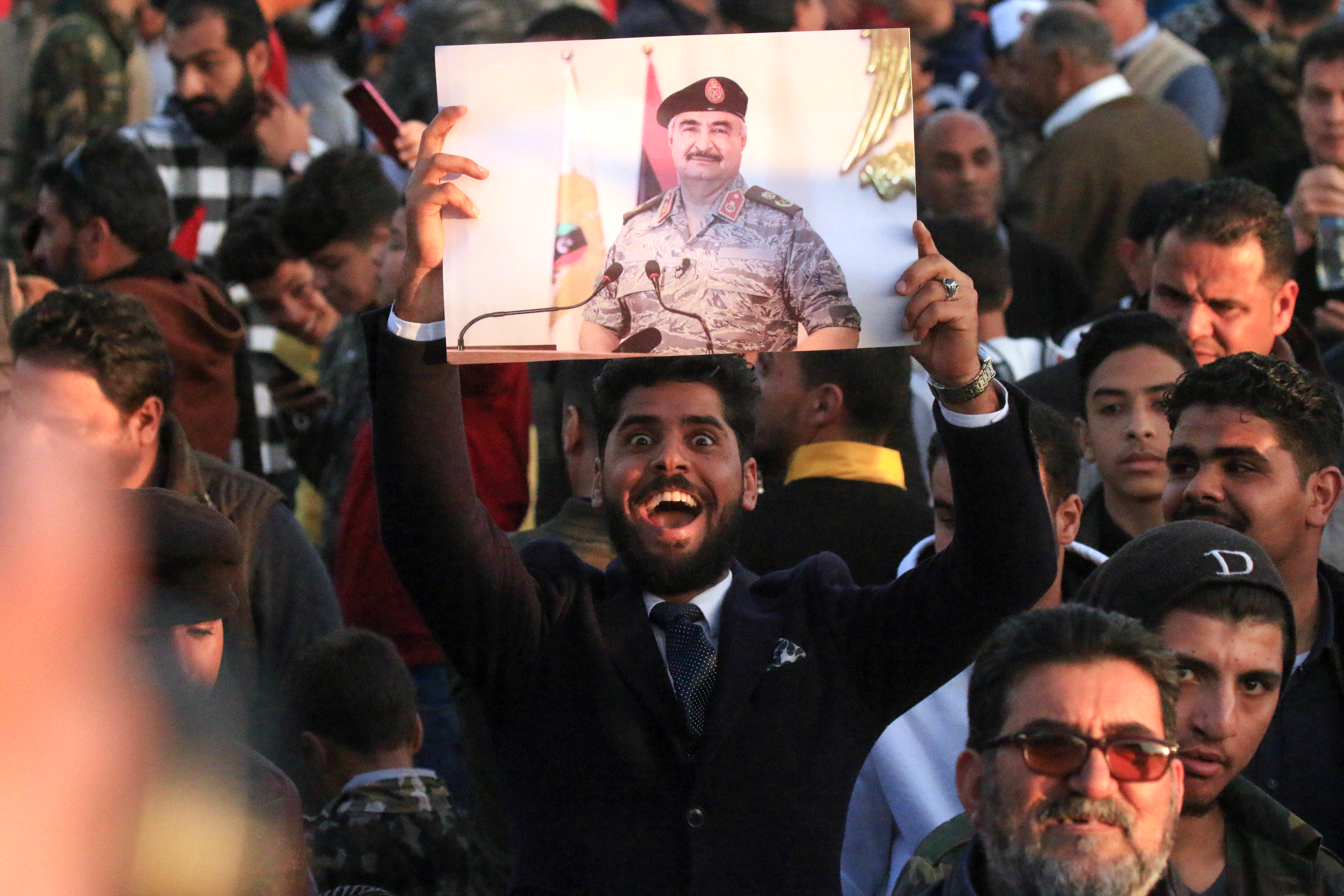
Arabic press review: Egypt pressured to intervene in Libya by Gulf powers
Egypt has been hesitant to directly intervene in its neighbour fearing long-term negative consequences
 www.middleeasteye.net
www.middleeasteye.net
Arabic press review: Egypt pressured to intervene in Libya by Gulf powers
By Mohammad Ayesh Published date: 15 June 2020 15:38 UTC
Egypt pressed to enter battle for Libya
Well-informed sources said that Saudi Arabia and the UAE were exerting pressure on Egypt to launch a direct military intervention in Libya after military commander Khalifa Haftar suffered heavy losses at the hands of the forces of the internationally recognised Government of National Accord (GNA), according to Al-Akhbar newspaper.
The sources said that this pressure is offset by attempts by Turkey - who backed the GNA - to neutralise Cairo, especially with the large costs and losses that Egypt should it act on Saudi-UAE pressures.
Until now, Egypt has refused direct military intervention - even as it interferes indirectly - and this refusal is linked to the Egyptian desire for good relations with the Libyans. Though some Libyans might accept the intervention today, it could be damaging in the future.
The sources added that “Cairo informed Abu Dhabi and Riyadh that it was participating in support and assistance operations without declaration,” knowing that its only declared intervention was to bomb militant groups that had massacred a number of Egyptian Copts in 2015.
danielboon
TB Fanatic
Getting closer every minute
danielboon
TB Fanatic
Persia, Ethiopia, and Libya with them; all of them with shield and helmet:
jward
passin' thru
Doge
@IntelDoge
·
32m
#Turkey has launched a new operation in northern #Iraq going after PKK/YPG according to the Turkish Defense Ministry. (
@TRTWorldNow
)
@IntelDoge
·
32m
#Turkey has launched a new operation in northern #Iraq going after PKK/YPG according to the Turkish Defense Ministry. (
@TRTWorldNow
)
jward
passin' thru
Annabel Rubio
@RubioAnnabel
41m
A Turkish Frigate is in place to protect GNA and Allied forces from air invasion
View: https://twitter.com/RubioAnnabel/status/1273202497759436802?s=20
@RubioAnnabel
41m
A Turkish Frigate is in place to protect GNA and Allied forces from air invasion
View: https://twitter.com/RubioAnnabel/status/1273202497759436802?s=20
jward
passin' thru
Military Situation In Syria On June 17, 2020 (Map Update)
Donate

Click to see the full-size image
A brief overview of the recent developments in Syria:
Donate

Click to see the full-size image
A brief overview of the recent developments in Syria:
- The Syrian Army shelled militant positions in Fatirah and al-Barah in southern Idlib with artillery;
- A unmanned combat aerial vehicle of the US-led coalition reportedly sruck a Hayat Tahrir al-Sham target south of Sarmada;
- A member of militants’ security unit was wounded in an explosion in the Azaz area;
- The Syrian Democratic Forces (SDF) security operation against ISIS cells continues in the Busairah area;
- Turkish-backed forces shelled an SDF position near Ayn Isa with artillery;
- The Russian Military Police set up an outpost in the village of Derna Aghe near the Syrian-Turkish border.
jward
passin' thru

EHA News
@eha_news
11m
BREAKING: Turkish frigates carried out radar targeting three times on French warships after the French sailors intended to search a Turkish cargo ship in the Mediterranean French warship reportedly withdrew thinking that the Turkish navy was about to launch missile on them —AFP
danielboon
TB Fanatic
EndGameWW3 Retweeted
First Squawk
@FirstSquawk
·
42m
FRENCH MINISTRY ACCUSES TURKEY’S NAVY OF ‘HOSTILE AND AGGRESSIVE’ ACTS TOWARDS ITS NATO ALLIES TO PREVENT ENFORCEMENT OF UN ARMS EMBARGO
First Squawk
@FirstSquawk
·
42m
FRENCH MINISTRY ACCUSES TURKEY’S NAVY OF ‘HOSTILE AND AGGRESSIVE’ ACTS TOWARDS ITS NATO ALLIES TO PREVENT ENFORCEMENT OF UN ARMS EMBARGO
danielboon
TB Fanatic
EndGameWW3 Retweeted
Asharq Al-Awsat English
@aawsat_eng
·
44m
#Breaking| #France foreign ministry says main obstacle to peace in #Libya is violations of #UN arms embargo, notably by #Turkey
Asharq Al-Awsat English
@aawsat_eng
·
44m
#Breaking| #France foreign ministry says main obstacle to peace in #Libya is violations of #UN arms embargo, notably by #Turkey
jward
passin' thru
Nafiseh Kohnavard
@nafisehkBBC
1h
#Update At least 4 rockets landed in Green Zone #Baghdad. The union III military base's alarm went off as well as in US Embassy #Iraq Only 2 nights ago there was another rocket attack on a US military installations near Baghdad International Airport.
***********************************************
Global: MilitaryInfo
@Global_Mil_Info
·
1h
NEW: Multiple rockets have impacted the Green Zone in Baghdad, #Iraq.
@nafisehkBBC
1h
#Update At least 4 rockets landed in Green Zone #Baghdad. The union III military base's alarm went off as well as in US Embassy #Iraq Only 2 nights ago there was another rocket attack on a US military installations near Baghdad International Airport.
***********************************************
Global: MilitaryInfo
@Global_Mil_Info
·
1h
NEW: Multiple rockets have impacted the Green Zone in Baghdad, #Iraq.
Plain Jane
Just Plain Jane
Zerohedge
ZeroHedge - On a long enough timeline, the survival rate for everyone drops to zero
Turkey Launches 'Largest Ever' Air & Ground Assault Into Northern Iraq

by Tyler Durden
Thu, 06/18/2020 - 01:00
TwitterFacebookRedditEmailPrint
NATO-member Turkey has controversially initiated a major bombing campaign over northern Iraq targeting Kurdish armed groups, specifically the outlawed PKK which Ankara has long said uses Iraqi territory to conduct a cross-border insurgency.
The military incursion also involves ground troops. On Tuesday evening the Turkish Defense Ministry announced the start of “Operation Tiger Claw” with the following statement: “In order to neutralize the elements of the ‘Kurdistan Workers Party’ (PKK) and other terrorist elements that threaten the security of our people and our borders, victory has reached the heroes of the commando units who are currently in the Haftanin area.”
Iraq's Ministry of Foreign Affairs - outraged at yet another violation of Iraqi sovereignty - promptly summoned the Turkish ambassador to Baghdad and lodged a memorandum of protest.
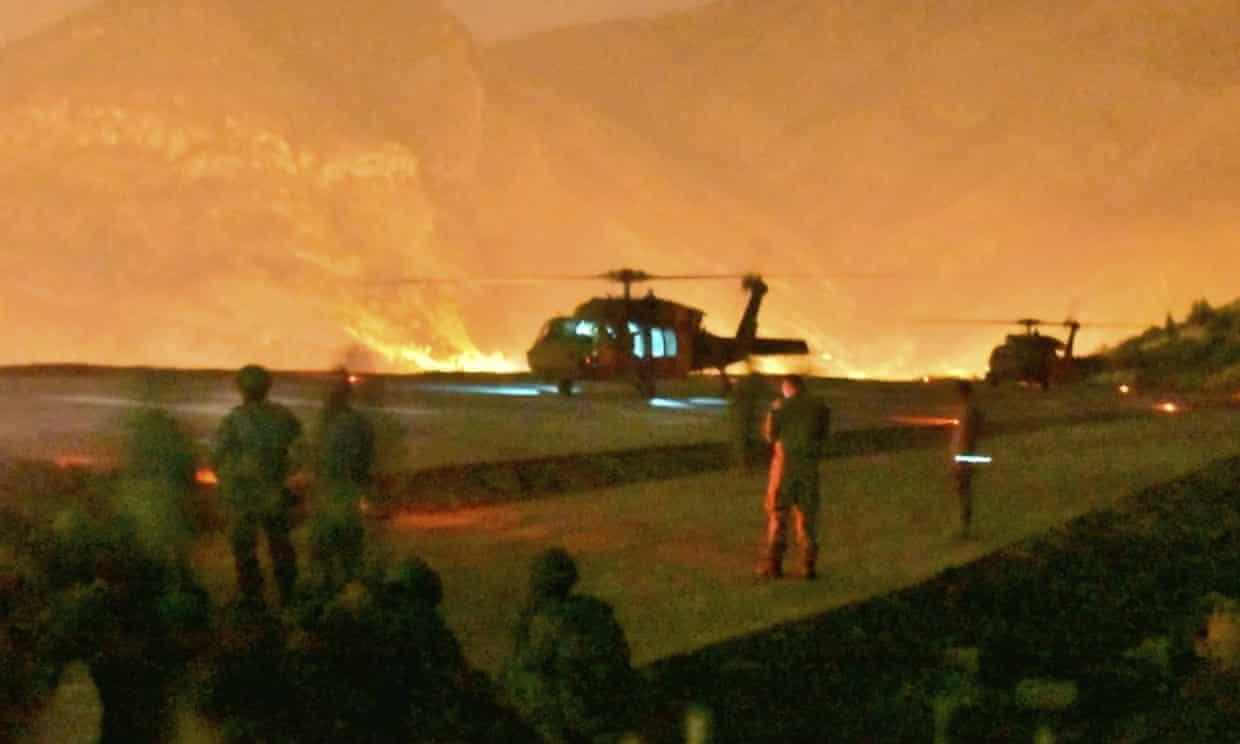 Turkish ministry of defense photo of Turkish troops in action against Kurdish militants in northern Iraq, via AP.
Turkish ministry of defense photo of Turkish troops in action against Kurdish militants in northern Iraq, via AP.The Erdogan government, meanwhile, has claimed it's acting in 'defense' after PKK insurgents have launched repeat attacks from Iraqi and Syrian soil over the past years.
Multiple reports suggest that this particular operation is unprecedented in its scale:
The ongoing airstrikes included attacks in and around Sinjar Mountain, where it must be remembered tens of thousands of members of the ethno-religious group, the Yazidis, took refuge from ISIS in 2014, after which a US military rescue mission ensued to protect the group. It's yet another example of local US allies coming under NATO member Turkey's bombs.Special forces were airlifted and deployed overland to the border region of Haftanin in the early hours of Wednesday for Operation Claw-Tiger. The campaign targeted 150 suspected Kurdistan Workers’ party (PKK) positions and was supported by jets, helicopters, drones and artillery, the Turkish defense ministry said.
The Turkish Defense Ministry further issued the following propaganda video upon the start of "Operation Tiger Claw":

T.C. Millî Savunma Bakanlığı
✔@tcsavunma
https://twitter.com/tcsavunma/status/1273019856171028483
Halkımızın ve hudutlarımızın güvenliğini tehdit eden PKK ve diğer terörist unsurları etkisiz hale getirmek maksadıyla; Hava Kuvvetleri, ateş destek vasıtaları, ATAK Helikopterleri, İHA ve SİHA’larla desteklenen Komandolarımız, hava hücum harekâtıyla bölgeye intikal etmişlerdir.
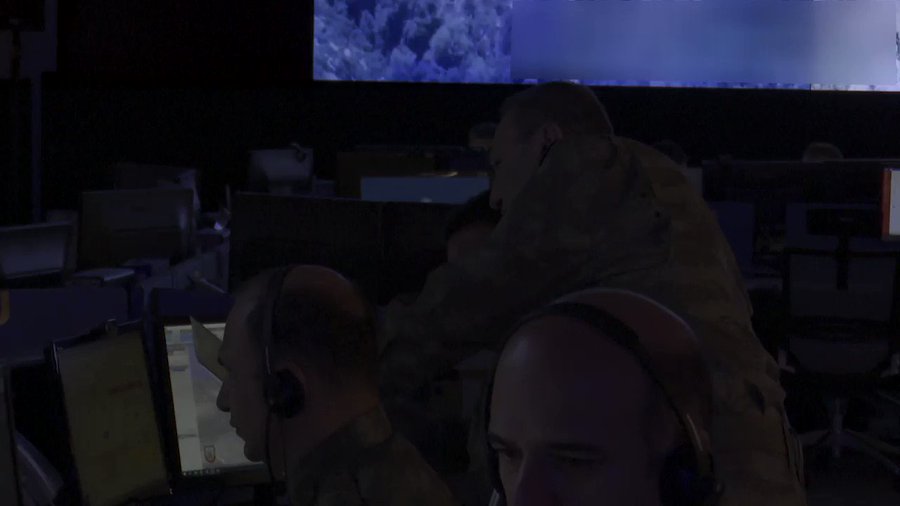
17.5K
6:29 PM - Jun 16, 2020
Twitter Ads info and privacy
4,175 people are talking about this
The bombings have reportedly impacted Yazidi refugee camps in the area as well. Critics of this latest Turkish aggression against the Kurds and other ethnic minorities have pointed out that NATO Secretary General Jens Stoltenberg has remained silent.
Stoltenberg has in the past not only remained silent amid the pattern of Turkish cross-border attacks, but has repeatedly defended Turkey, which has the second-largest army in NATO behind the United States.
Alongside Iraq's government, the Arab League has also weighed in to condemn the new operation, which further threatens the northern Iraq border region's civilians, especially the vulnerable internally displaced refugee population (IDPs).
jward
passin' thru

US AFRICOM
@USAfricaCommand
1h
NEWS: New evidence of Russian aircraft active in Libyan airspace (1 of 3) ----- "#Russia's sustained involvement in #Libya increases the violence and delays a political solution." - BG Gering, director of operations Release: https://go.usa.gov/xwyxY Photos: https://go.usa.gov/xwyce
View: https://twitter.com/USAfricaCommand/status/1273575770204618754?s=20
jward
passin' thru

M.LNA
@LNA2019M
NATO launches investigation into the Turkey - France frigate interception in the Mediterranean Sea. #Libya
jward
passin' thru
Moscow’s Next Front: Russia’s Expanding Military Footprint in Libya
June 17, 2020
New imagery analysis from the Center for Strategic and International Studies (CSIS) of Russian operations in Libya indicates the breadth and depth of Russian involvement, as well as its limits in altering the conflict’s trajectory, as seen in recent setbacks for Moscow’s primary partner, General Khalifa Haftar and the Libyan National Army (LNA). Imagery released in late May by U.S. Africa Command (AFRICOM) displayed Russia’s deployment of at least 14 combat aircraft, including Su-24 attack, MiG-29 fighter, and Su-35 interceptor escort aircraft, from bases in Russia and Syria to Libya’s Al Khadim and Al Jufra air bases. A closer examination of Russia’s deployment at Al Jufra Air Base reveals not only an expansion of Russian air activity but also of its ground forces, namely the Russian private military company (PMC) Wagner Group, the core component of Russia’s intervention in Libya.
Russia’s Deployment to Al Jufra in Context
Since 2015, Russia has provided military, diplomatic, and financial support to Libya’s eastern-based government in Tobruk and the LNA in its war against the UN-backed Government of National Accord (GNA) in Tripoli. Since 2017, Russian support has centered on training, equipping, and advising the LNA and its commander, General Khalifa Haftar, for its push into central and western Libya, alongside Haftar’s other backers, Egypt and the United Arab Emirates. At the vanguard of Russian military efforts has been the Wagner Group, which by 2018 had deployed several hundred mercenaries to multiple training sites, airfields, forward bases, and key energy and infrastructure sites, thus supporting the LNA as well as securing Russian interests. Russian PMC activity surged in the summer of 2019 to bolster Haftar’s flagging western Libya campaign and enable an LNA offensive against Tripoli. By early 2020, up to 1,200 Wagner mercenaries were on the ground in Libya, to then be supported from the air with the arrival of Russian combat aircraft.
Strategically located in central Libya, Al Jufra Air Base has served as the main air and logistics hub for LNA advances into western Libya and launching point for the Tripoli offensive. The airfield hosted multiple Libyan air force squadrons during the Gaddafi regime, and dozens of aircraft remain abandoned there. Russian aircraft and Wagner mercenaries reportedly began operating at Al Jufra in 2019, and that presence expanded in 2020. CSIS imagery analysis of Al Jufra from June 6, 2020 displays the breadth and depth of Russian support and activity.
Image 1: Full air base shot, June 6, 2020.

Analysis of additional imagery beginning in mid-May suggests a buildup of Russian forces at Al Jufra and readying for an influx of aircraft. Russian Pantsir-S1 surface-to-air missile (SAM) and anti-aircraft artillery systems are deployed on the northern side of the base, most likely to deter and defend against Turkish airstrikes. New ground weapons, equipment, vehicles, and tents were observed across the facility, including at a MiG-29 hangar, probably in preparation for the aircrafts’ arrival.
Image 2: MiG-29 on taxiway being towed to shelter, May 19, 2020.

The arrival of MiG-29 fighters and Su-24 attack aircraft at Al Jufra on May 19 was most likely intended to provide enhanced close air support and offensive firepower to LNA and Wagner Group ground forces operating to the north, on Tripoli’s southern outskirts. There, by late May 2020, Wagner and LNA fighters were increasingly bogged down by Turkish-backed GNA forces after rapid gains earlier in the year, achieved in large part through growing Russian ground combat power.
Wagner Group Ground Activity in Tripoli and Al Jufra
While Russian PMC personnel have been training and equipping LNA forces in 2017 for a variety of ground, air, and air defense missions, in the fall of 2019 Wagner Group forces began to take on direct combat roles for the Tripoli offensive. Several hundred Wagner Group specialists have forward deployed with LNA units in and around Tripoli, employing Russian assets, including snipers, anti-tank guided missiles, electronic warfare, reconnaissance unmanned aerial vehicles, SAMs, and precision-guided artillery, to execute vital combat tasks.
Al Jufra Air Base has served as a critical transport and staging area for forward-deployed Wagner and LNA units operating in and around Tripoli. However, since April, as the Turkish-backed GNA counteroffensive has erased many of the LNA’s gains, Al Jufra also appears to be serving as the fallback location for Wagner Group forces retreating from the Tripoli assault. In April, GNA forces seized Al Watiyah Air Base to the west of Tripoli, forcing Russian PMCs to withdraw, abandoning multiple Pantsir-S1 SAM systems and other equipment. In May, GNA and Turkish forces pressed south and, by May 24, compelled the withdrawal of hundreds of Wagner Group personnel. According to open-source reporting, Russian fighters retreated south with heavy weapons and equipment to the key junction town of Bani Walid, located 180 kilometers south of Tripoli, and on May 25 departed for Al Jufra.
The imagery below depicts the arrival of a large contingent of Russian forces and equipment at Al Jufra on May 28. Based on geospatial analysis and open-source reports, we assess this contingent was most likely the retreating Russian elements from Bani Walid.
Image 3: Arrival of artillery and PMC, May 28, 2020.
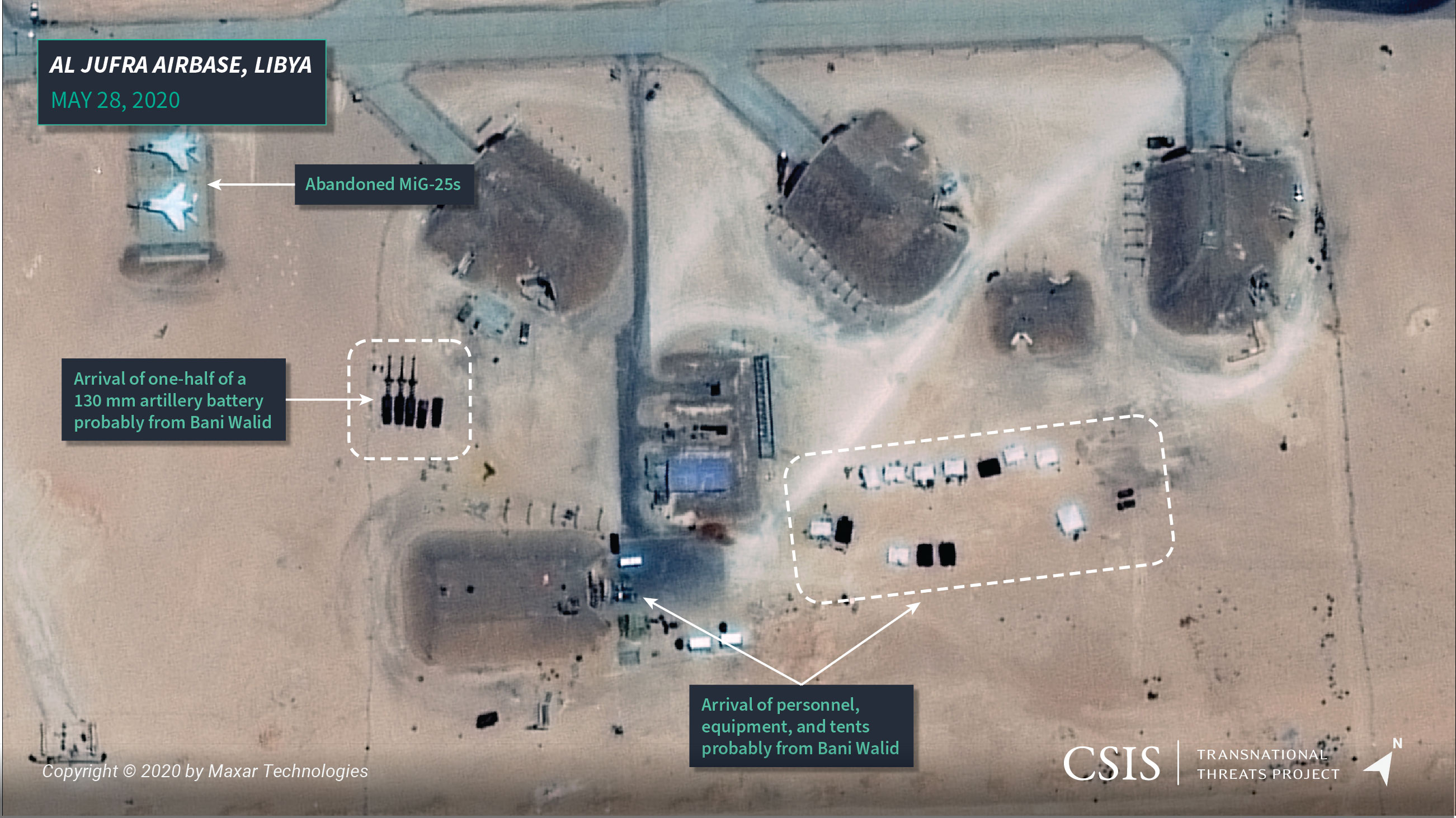
Image 4: Arrival of Pantsir-S1 and additional vehicles and equipment, May 28, 2020.

Image 3 indicates the arrival on May 28 of one-half of a Russian 130 mm towed artillery battery, accompanying equipment and vehicles, and numerous personnel as indicated by new tents on the base. Image 4 depicts the arrival, on the same day, of a new Pantsir-S1 system, along with additional vehicles, equipment, and personnel, most likely withdrawn from LNA and Wagner Group forward locations south of Tripoli.
Outlook and Implications
Russia’s intervention in Libya and deployment of PMCs achieved significant LNA territorial gains while strengthening Moscow’s geostrategic position in the country but has also revealed the limits of its PMC-led proxy warfare approach. Haftar’s Wagner-enabled assault on Tripoli triggered a large-scale escalation from Turkey, which itself deployed proxy forces, including thousands of Syrian fighters, to stall LNA advances in early 2020. With Moscow still denying Russia’s presence and operations in Tripoli, Turkey and the GNA have pressed their counteroffensive and, as of mid-June 2020, have retaken most of the LNA’s advances from earlier in the year, including critical positions in Tarhuna, Sirte, and Bani Walid.
June 4, 2020 June 7, 2020

“Libyan government forces seize Haftar stronghold Tarhuna,” Al Jazeera, June 5, 2020, Libyan government forces seize Haftar stronghold Tarhuna, licensed under CC BY-NC-SA 4.0; and “Libya: Haftar's forces 'slow down' GNA advance on Sirte,” Al Jazeera, June 11, 2020, Libya: Haftar's forces 'slow down' GNA advance on Sirte, licensed under CC BY-NC-SA 4.0
Despite the withdrawal of hundreds of Wagner Group mercenaries from Tripoli, Russia almost certainly remains committed to supporting Haftar and will continue to provide military support to the LNA, including at strategic locations and bases such as Al Jufra. The imagery below from June 8 depicts a Russian Su-24 attack aircraft taxiing on an Al Jufra runway and a MiG-29 fighter in flight over the base, demonstrating continued Russian military activity.
Image 5: Su-24 taxiing to shelter at Al Jufra, June 8, 2020.

Image 6: MiG-29 in flight over Al Jufra, June 8, 2020.
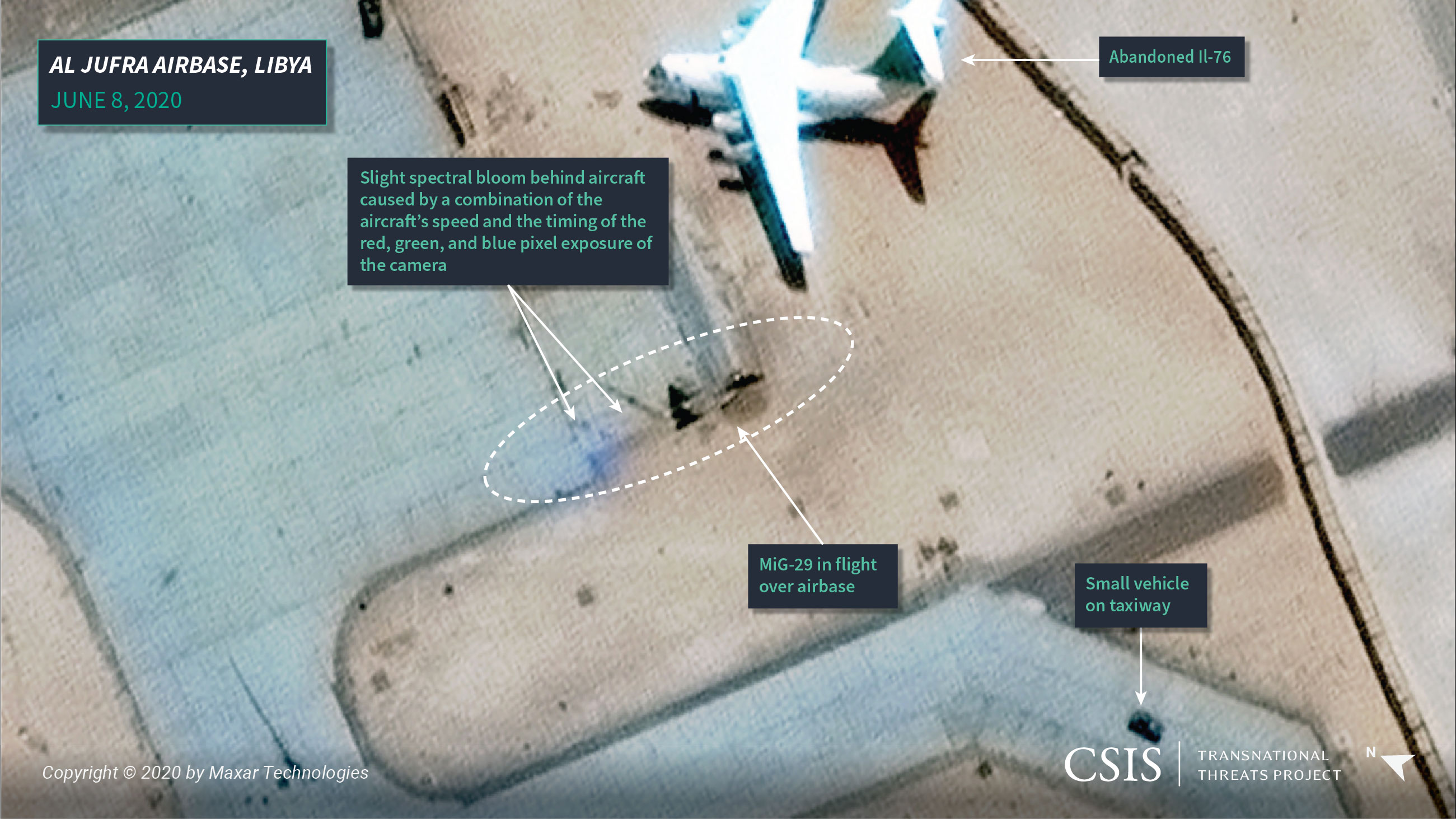
While Moscow weighs the importance of LNA setbacks and heavy Wagner Group losses, including dozens of fighters killed and key weapons systems such as UAVs and Pantsir-S1s seized or destroyed, PMC forces and key assets such as combat aircraft are likely to remain deployed at Jufra and key sites in eastern Libya. While Russia’s PMC-led intervention met its limit on the frontlines of Tripoli, it has ensured for Moscow a new strategic foothold in North Africa and on the Mediterranean.
Brian Katz is a fellow in the International Security Program at the Center for Strategic and International Studies (CSIS) in Washington, D.C. Joseph S. Bermudez Jr. is senior fellow for imagery analysis (non-resident) at CSIS.
Commentary is produced by the Center for Strategic and International Studies (CSIS), a private, tax-exempt institution focusing on international public policy issues. Its research is nonpartisan and nonproprietary. CSIS does not take specific policy positions. Accordingly, all views, positions, and conclusions expressed in this publication should be understood to be solely those of the author(s).
© 2020 by the Center for Strategic and International Studies. All rights reserved.
Posted for fair use
Moscow’s Next Front: Russia’s Expanding Military Footprint in Libya
June 17, 2020
New imagery analysis from the Center for Strategic and International Studies (CSIS) of Russian operations in Libya indicates the breadth and depth of Russian involvement, as well as its limits in altering the conflict’s trajectory, as seen in recent setbacks for Moscow’s primary partner, General Khalifa Haftar and the Libyan National Army (LNA). Imagery released in late May by U.S. Africa Command (AFRICOM) displayed Russia’s deployment of at least 14 combat aircraft, including Su-24 attack, MiG-29 fighter, and Su-35 interceptor escort aircraft, from bases in Russia and Syria to Libya’s Al Khadim and Al Jufra air bases. A closer examination of Russia’s deployment at Al Jufra Air Base reveals not only an expansion of Russian air activity but also of its ground forces, namely the Russian private military company (PMC) Wagner Group, the core component of Russia’s intervention in Libya.
Russia’s Deployment to Al Jufra in Context
Since 2015, Russia has provided military, diplomatic, and financial support to Libya’s eastern-based government in Tobruk and the LNA in its war against the UN-backed Government of National Accord (GNA) in Tripoli. Since 2017, Russian support has centered on training, equipping, and advising the LNA and its commander, General Khalifa Haftar, for its push into central and western Libya, alongside Haftar’s other backers, Egypt and the United Arab Emirates. At the vanguard of Russian military efforts has been the Wagner Group, which by 2018 had deployed several hundred mercenaries to multiple training sites, airfields, forward bases, and key energy and infrastructure sites, thus supporting the LNA as well as securing Russian interests. Russian PMC activity surged in the summer of 2019 to bolster Haftar’s flagging western Libya campaign and enable an LNA offensive against Tripoli. By early 2020, up to 1,200 Wagner mercenaries were on the ground in Libya, to then be supported from the air with the arrival of Russian combat aircraft.
Strategically located in central Libya, Al Jufra Air Base has served as the main air and logistics hub for LNA advances into western Libya and launching point for the Tripoli offensive. The airfield hosted multiple Libyan air force squadrons during the Gaddafi regime, and dozens of aircraft remain abandoned there. Russian aircraft and Wagner mercenaries reportedly began operating at Al Jufra in 2019, and that presence expanded in 2020. CSIS imagery analysis of Al Jufra from June 6, 2020 displays the breadth and depth of Russian support and activity.
Image 1: Full air base shot, June 6, 2020.

Analysis of additional imagery beginning in mid-May suggests a buildup of Russian forces at Al Jufra and readying for an influx of aircraft. Russian Pantsir-S1 surface-to-air missile (SAM) and anti-aircraft artillery systems are deployed on the northern side of the base, most likely to deter and defend against Turkish airstrikes. New ground weapons, equipment, vehicles, and tents were observed across the facility, including at a MiG-29 hangar, probably in preparation for the aircrafts’ arrival.
Image 2: MiG-29 on taxiway being towed to shelter, May 19, 2020.

The arrival of MiG-29 fighters and Su-24 attack aircraft at Al Jufra on May 19 was most likely intended to provide enhanced close air support and offensive firepower to LNA and Wagner Group ground forces operating to the north, on Tripoli’s southern outskirts. There, by late May 2020, Wagner and LNA fighters were increasingly bogged down by Turkish-backed GNA forces after rapid gains earlier in the year, achieved in large part through growing Russian ground combat power.
Wagner Group Ground Activity in Tripoli and Al Jufra
While Russian PMC personnel have been training and equipping LNA forces in 2017 for a variety of ground, air, and air defense missions, in the fall of 2019 Wagner Group forces began to take on direct combat roles for the Tripoli offensive. Several hundred Wagner Group specialists have forward deployed with LNA units in and around Tripoli, employing Russian assets, including snipers, anti-tank guided missiles, electronic warfare, reconnaissance unmanned aerial vehicles, SAMs, and precision-guided artillery, to execute vital combat tasks.
Al Jufra Air Base has served as a critical transport and staging area for forward-deployed Wagner and LNA units operating in and around Tripoli. However, since April, as the Turkish-backed GNA counteroffensive has erased many of the LNA’s gains, Al Jufra also appears to be serving as the fallback location for Wagner Group forces retreating from the Tripoli assault. In April, GNA forces seized Al Watiyah Air Base to the west of Tripoli, forcing Russian PMCs to withdraw, abandoning multiple Pantsir-S1 SAM systems and other equipment. In May, GNA and Turkish forces pressed south and, by May 24, compelled the withdrawal of hundreds of Wagner Group personnel. According to open-source reporting, Russian fighters retreated south with heavy weapons and equipment to the key junction town of Bani Walid, located 180 kilometers south of Tripoli, and on May 25 departed for Al Jufra.
The imagery below depicts the arrival of a large contingent of Russian forces and equipment at Al Jufra on May 28. Based on geospatial analysis and open-source reports, we assess this contingent was most likely the retreating Russian elements from Bani Walid.
Image 3: Arrival of artillery and PMC, May 28, 2020.

Image 4: Arrival of Pantsir-S1 and additional vehicles and equipment, May 28, 2020.

Image 3 indicates the arrival on May 28 of one-half of a Russian 130 mm towed artillery battery, accompanying equipment and vehicles, and numerous personnel as indicated by new tents on the base. Image 4 depicts the arrival, on the same day, of a new Pantsir-S1 system, along with additional vehicles, equipment, and personnel, most likely withdrawn from LNA and Wagner Group forward locations south of Tripoli.
Outlook and Implications
Russia’s intervention in Libya and deployment of PMCs achieved significant LNA territorial gains while strengthening Moscow’s geostrategic position in the country but has also revealed the limits of its PMC-led proxy warfare approach. Haftar’s Wagner-enabled assault on Tripoli triggered a large-scale escalation from Turkey, which itself deployed proxy forces, including thousands of Syrian fighters, to stall LNA advances in early 2020. With Moscow still denying Russia’s presence and operations in Tripoli, Turkey and the GNA have pressed their counteroffensive and, as of mid-June 2020, have retaken most of the LNA’s advances from earlier in the year, including critical positions in Tarhuna, Sirte, and Bani Walid.
June 4, 2020 June 7, 2020

“Libyan government forces seize Haftar stronghold Tarhuna,” Al Jazeera, June 5, 2020, Libyan government forces seize Haftar stronghold Tarhuna, licensed under CC BY-NC-SA 4.0; and “Libya: Haftar's forces 'slow down' GNA advance on Sirte,” Al Jazeera, June 11, 2020, Libya: Haftar's forces 'slow down' GNA advance on Sirte, licensed under CC BY-NC-SA 4.0
Despite the withdrawal of hundreds of Wagner Group mercenaries from Tripoli, Russia almost certainly remains committed to supporting Haftar and will continue to provide military support to the LNA, including at strategic locations and bases such as Al Jufra. The imagery below from June 8 depicts a Russian Su-24 attack aircraft taxiing on an Al Jufra runway and a MiG-29 fighter in flight over the base, demonstrating continued Russian military activity.
Image 5: Su-24 taxiing to shelter at Al Jufra, June 8, 2020.

Image 6: MiG-29 in flight over Al Jufra, June 8, 2020.

While Moscow weighs the importance of LNA setbacks and heavy Wagner Group losses, including dozens of fighters killed and key weapons systems such as UAVs and Pantsir-S1s seized or destroyed, PMC forces and key assets such as combat aircraft are likely to remain deployed at Jufra and key sites in eastern Libya. While Russia’s PMC-led intervention met its limit on the frontlines of Tripoli, it has ensured for Moscow a new strategic foothold in North Africa and on the Mediterranean.
Brian Katz is a fellow in the International Security Program at the Center for Strategic and International Studies (CSIS) in Washington, D.C. Joseph S. Bermudez Jr. is senior fellow for imagery analysis (non-resident) at CSIS.
Commentary is produced by the Center for Strategic and International Studies (CSIS), a private, tax-exempt institution focusing on international public policy issues. Its research is nonpartisan and nonproprietary. CSIS does not take specific policy positions. Accordingly, all views, positions, and conclusions expressed in this publication should be understood to be solely those of the author(s).
© 2020 by the Center for Strategic and International Studies. All rights reserved.
Posted for fair use
Moscow’s Next Front: Russia’s Expanding Military Footprint in Libya
jward
passin' thru
Faytuks News
@Faytuks
Turkey says that they’re establishing bases in northern Iraq to ensure “border security” after their airstrikes on the PKK (
@ASBMilitary
)
@Faytuks
Turkey says that they’re establishing bases in northern Iraq to ensure “border security” after their airstrikes on the PKK (
@ASBMilitary
)
danielboon
TB Fanatic
Russian aircraft active in Libya, AFRICOM says
Reuters|
Published: 06.18.20
Russian jets delivered to Libya in May are being actively used in the North African country, U.S. Africa Command (AFRICOM) said on Thursday.
At least 14 MiG-29s and several Su-24s were flown to Libya via Syria, where their Russian markings had been painted over, AFRICOM said in May.
AFRICOM said in a statement on Thursday it had photographic evidence of a Russian aircraft taking off from Jufra in central Libya, and that a MiG-29 was photographed operating in the vicinity of the city of Sirte

 www.ynetnews.com
www.ynetnews.com
Reuters|
Published: 06.18.20
Russian jets delivered to Libya in May are being actively used in the North African country, U.S. Africa Command (AFRICOM) said on Thursday.
At least 14 MiG-29s and several Su-24s were flown to Libya via Syria, where their Russian markings had been painted over, AFRICOM said in May.
AFRICOM said in a statement on Thursday it had photographic evidence of a Russian aircraft taking off from Jufra in central Libya, and that a MiG-29 was photographed operating in the vicinity of the city of Sirte

Russian aircraft active in Libya, AFRICOM says
Zagdid
Veteran Member

Egypt has a legitimate right to intervene in Libya, Sisi says
"Be prepared to carry out any mission, here inside our borders - or if necessary, outside our borders," he told several air force pilots and special forces personnel at the base.
Egypt's Sisi orders army to prepare amid tensions over Libya
By REUTERS
JUNE 20, 2020 16:55
Egyptian President Abdel Fattah al-Sisi on Saturday ordered his army to be ready to carry out any mission inside or outside the country to protect its national security amid tensions over Turkey's intervention in neighboring Libya.
Turkey supports the internationally recognized Government of National Accord (GNA) in Tripoli, which, with Turkish support, has reversed a 14-month assault on the capital by Khalifa Haftar's eastern-based Libyan National Army (LNA)
jward
passin' thru
EndGameWW3
@EndGameWW3
15m
Egypt’s El-Sisi orders army to be ready for missions abroad amid tensions over Libya
View: https://twitter.com/EndGameWW3/status/1274359471477850112?s=20
Egypt’s El-Sisi orders army to be ready for missions abroad amid tensions over Libya
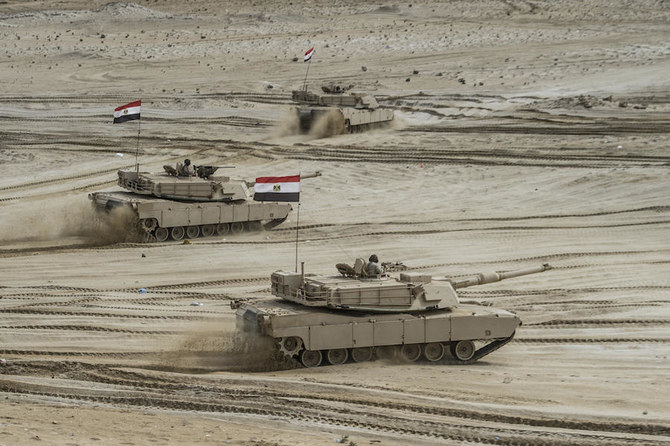
El-Sisi on Saturday toured an air base near Egypt’s 1,200 kilometer-long western border with Libya, where state TV showed him watching fighter jets and helicopters taking off. (File/AFP)
Short Url

 arab.news
arab.news
Updated 14 sec ago
Reuters
June 20, 2020 13:49
818
CAIRO: Egyptian President Abdel Fattah El-Sisi on Saturday ordered his army to be ready to carry out any mission inside or outside the country to protect its national security amid tensions over Turkey’s intervention in neighboring Libya.
Turkey supports the internationally recognized Government of National Accord (GNA) in Tripoli, which, with Turkish support, has reversed a 14-month assault on the capital by Khalifa Haftar’s eastern-based Libyan National Army (LNA)
El-Sisi on Saturday toured an air base near Egypt’s 1,200 kilometer-long western border with Libya, where state TV showed him watching fighter jets and helicopters taking off.
“Be prepared to carry out any mission, here inside our borders — or if necessary, outside our borders,” he told several air force pilots and special forces personnel at the base.
He said the Egyptian army was “one of the strongest in the region.” “It is a rational army; an army that protects and does not threaten... this is our strategy, our beliefs and our principles that we will never change.”
Earlier this month, Egypt called for a cease-fire in Libya as part of an initiative which also proposed an elected leadership council for the country.
The United States, Russia and the UAE welcomed the plan. Germany said UN-backed talks were key to the peace process.
However, Turkey dismissed the proposal as an attempt to save Haftar following the losses he suffered on the battlefield.
@EndGameWW3
15m
Egypt’s El-Sisi orders army to be ready for missions abroad amid tensions over Libya
View: https://twitter.com/EndGameWW3/status/1274359471477850112?s=20
Egypt’s El-Sisi orders army to be ready for missions abroad amid tensions over Libya

El-Sisi on Saturday toured an air base near Egypt’s 1,200 kilometer-long western border with Libya, where state TV showed him watching fighter jets and helicopters taking off. (File/AFP)
Short Url

Egypt’s El-Sisi orders army to be ready for missions abroad amid tensions over Libya
CAIRO: Egyptian President Abdel Fattah El-Sisi on Saturday ordered his army to be ready to carry out any mission inside or outside the country amid tensions over regional rival Turkey’s intervention in neighboring Libya. He also warned forces loyal to the internationally recognized Government of...
 arab.news
arab.news
Updated 14 sec ago
Reuters
June 20, 2020 13:49
818
CAIRO: Egyptian President Abdel Fattah El-Sisi on Saturday ordered his army to be ready to carry out any mission inside or outside the country to protect its national security amid tensions over Turkey’s intervention in neighboring Libya.
Turkey supports the internationally recognized Government of National Accord (GNA) in Tripoli, which, with Turkish support, has reversed a 14-month assault on the capital by Khalifa Haftar’s eastern-based Libyan National Army (LNA)
El-Sisi on Saturday toured an air base near Egypt’s 1,200 kilometer-long western border with Libya, where state TV showed him watching fighter jets and helicopters taking off.
“Be prepared to carry out any mission, here inside our borders — or if necessary, outside our borders,” he told several air force pilots and special forces personnel at the base.
He said the Egyptian army was “one of the strongest in the region.” “It is a rational army; an army that protects and does not threaten... this is our strategy, our beliefs and our principles that we will never change.”
Earlier this month, Egypt called for a cease-fire in Libya as part of an initiative which also proposed an elected leadership council for the country.
The United States, Russia and the UAE welcomed the plan. Germany said UN-backed talks were key to the peace process.
However, Turkey dismissed the proposal as an attempt to save Haftar following the losses he suffered on the battlefield.
jward
passin' thru

EHA News
@eha_news
Haftar's forces must withdraw from Sirte for #Libyacease-fire, presidential spokesman Kalın[
@ikalin1
] says
A cease-fire would be possible only if everybody went back to their 2015 positions.
France was "jeopardizing" NATO security by supporting Haftar.
View: https://twitter.com/eha_news/status/1274336401480441856?s=20
